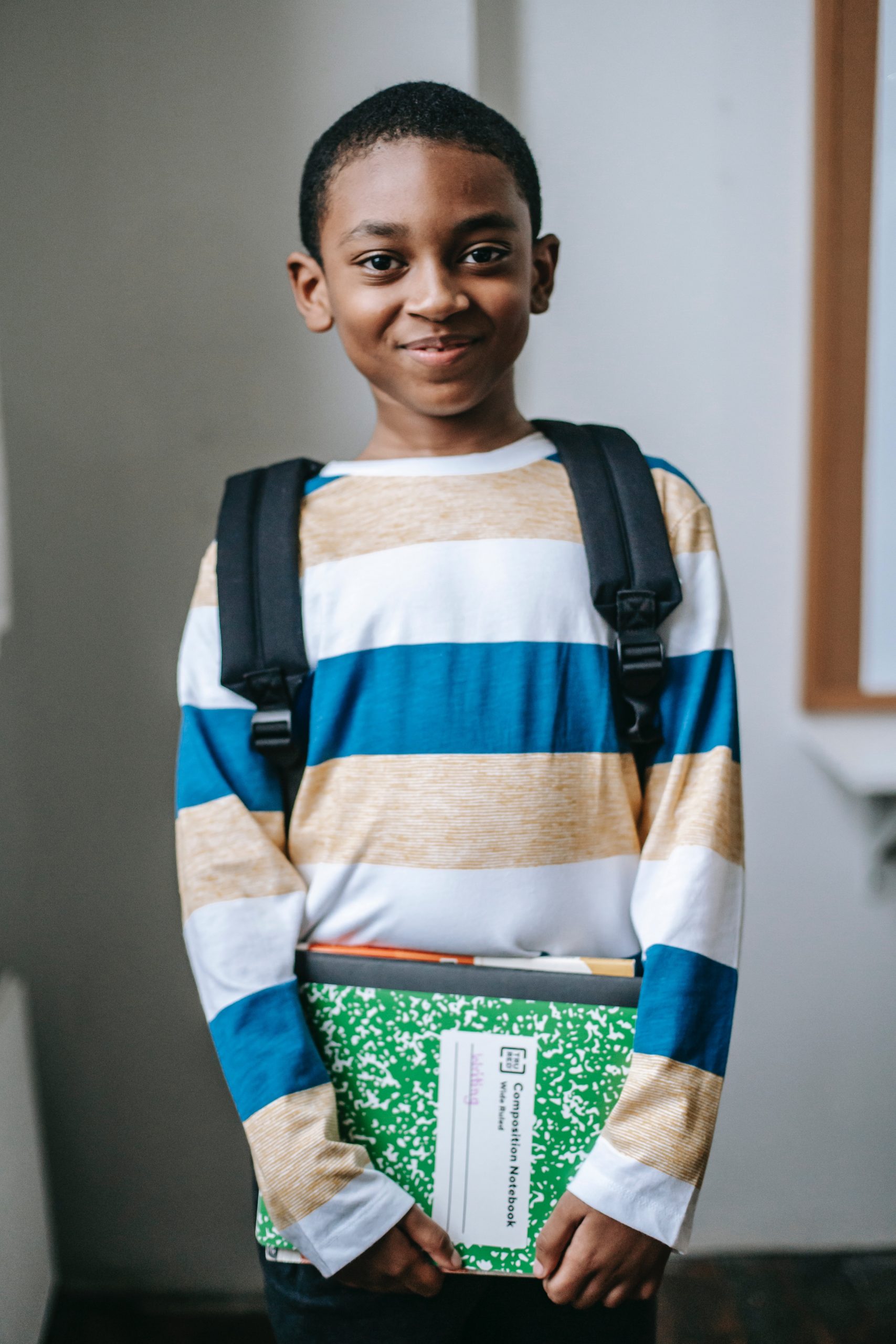Kids these days are developing a whole new set of skills unlike any other generation in history. They are going to school (whether in person or online) in the midst of a pandemic and facing a new set of challenges that is forcing them to learn differently and develop skills to adapt to a new style of education and way of living.
Moreover, children here in the United States are growing up witnessing division among people of different political denominations and strife as it relates to injustice among people of different race, ethnicity, and gender/sexual orientation. Kids who spend time on social media see and hear a variety of blasphemous acts taking place against all kinds of people from all different backgrounds and institutions. The messages about fairness, kindness, and equality that we want to resonate with our children are being contradicted and contorted, which makes things very confusing for a young developing mind.
Children are easily influenced by their peers and what goes on in the media. As parents, we want to inculcate a sense of moral responsibility and sound character into our children. This is why it is important, as adults in our society, that we model the pillars of character that we so desire in our children, which include care, kindness, compassion, forgiveness, honesty, and respect for all people.
The reality, however, is that everyone is different and each person carries with them their past, present, and future and is entitled to their own opinion. Now, it is one thing to have a difference of opinion with others. However, it is another thing to be sucked into an alluring quagmire of gossip and controversy and develop a negative thought pattern against a person, group, and/or institution where we find ourselves becoming stuck, angry, resentful, and pessimistic. It is easy enough to become entangled in this way of living and become unaware of the insidious, negative implications this behavior poses on our lives and those we most care about.
In order to raise awareness about the importance of social and emotional intelligence, we need to start at the homes and in the schools in order to best equip our children with the necessary tools to think critically and accurately recognize fact from fiction so they can appropriately and effectively handle a variety of issues, conflicts, and adversity as they arise throughout their lives.
Building a child’s emotional well-being is about showing them strategies on how to remain calm, understanding, and peaceful, all while maintaining a positive attitude and preserving a strong sense of character and integrity. So how and where do we begin?
GROWING UP IS NOT EASY
First off, we must remember that growing up is not a smooth and predictable ride for most kids. There are many factors that shape the development of a young person’s mind from childhood through adolescence. It can be hard, sometimes really hard for children, especially if they encounter adversity that requires them to make a decision to stand up for themselves and/or others, knowing it may not be the popular thing to do. They may find themselves part of a peer group that they really don’t want to be a part of and struggle to find a way out.
Growing up, I experienced and witnessed all kinds of bullying take place. I had choices to make as to whether I would join in on the action, or become a bystander and just sit on the sidelines, or rather step in and do something about it.
Being on the receiving end of verbal and physical abuse from my peers, while growing up, made it easy for me to decide which side of the fence I would take as I never wanted to see “the little guy” become a victim. But that is not always the case for all children who are bullied. Some resort to self-harming behaviors, while others become bullies themselves.
I will say that it would have been nice to have had someone in my corner when times got rough. Someone who I could count on when the bullies approached me and that I could trust to stand up for me. But that wasn’t my story.
The reality was that I needed to learn new skills that would help me develop resilience and become impervious to the verbal and physical attacks. I knew that when I stepped foot on the school bus each day, that I was on my own against “those kids” who were “looking to pick a fight.” I knew what it was like to battle in a war waged against me – time and time again – knowing that no one would come to my rescue when the confrontation began.
With that said, I also realize that there is a lot at stake for kids who stand up against bullying behavior. The child who makes the decision to support someone who is being picked on, bullied, or feeling outcast, is well aware that he/she may likely get backlash for it. These days, it’s not just physical or face-to-face verbal abuse that takes place. It’s also happening through text messaging, emails, and/or social media (a.k.a. cyberbullying).
I am so passionate about this topic, because I’ve seen how these defining moments in a young person’s life can shape their character and ultimately their course of life. In my opinion, the choices young people make in these moments largely defines their level of self-esteem and fulfillment they acquire throughout their life. I’ve written in more detail on this topic in a previous post “Teaching Children to Confront Bullying” where I offer helpful strategies on how children can stand up for themselves and others.
Research has shown that people who possess high self-esteem have no problem in empowering others and encouraging them to be their best. A leader with low self-esteem can often be controlling or even demonstrate micro-managing, oppressive behavior.
The message here for children is simple: When you see an injustice that is taking place in which you have the capability to do something about, the choice is yours and yours alone to act on. When something feels wrong and you know that it is negatively affecting someone or a group of people, it is important to act with courage and decide to DO SOMETHING.
At the school I teach, we reinforce five qualities of good character: kindness, trustworthiness, respect, fairness, and responsibility. The good news is that children can learn all of these qualities from a very young age and practice implementing them in a safe space at home and apply them at school, and within the community on a regular basis.
HOW TO EMPOWER YOUR CHILD
There are three primary things that children desire and that is to feel loved, understood, and accepted. These are at the core of developing one’s self-esteem and confidence to make decisions and understand that the outcomes are largely due to choices they’ve independently made.
Also, self-esteem consists of two main things:
1. Self-worth (a feeling that you matter and that you are heard) and
2. Self-efficacy (the ability to accomplish a task/solve a problem by yourself).
The more you get your child involved in decision-making, the more they feel that they matter. This is called “sharing the power” with your child to make them feel empowered. You can start when they are very young by giving them a choice as to what they would like to do. Putting them in charge of a task helps them develop leadership skills. I do this all of the time with my toddler as she helps set the table for dinner, empty the dishwasher, take the clothes out of the dryer, and pick up her toys and clean her room.
Another way to empower your child and facilitate a strong work ethic is if there are chores that need to be done, you can provide them with a list and ask them to select their top three choices. If they are little, you could have them choose between a couple of shirts and pants as to what they would like to wear. This is something my wife and I do with our toddler daughter and it makes her feel important and valued. Maybe once a week or every other week, you can offer your child a choice of a special meal or treat they would like and involve them in helping make it.
Another way to empower your child is to let them own their choices. With great power comes great responsibility (as Peter Parker once said) and the younger they are at learning this golden rule of life, the better it will serve them when the stakes are higher.
For instance, if they do not get a chore done by a time you have set for them, then the natural consequence is that they don’t get to engage in an activity that they would like to do. Let’s say they would like to play with a friend on Saturday and you’ve set a day and time for them to complete cleaning their room, yet by that time, it still hasn’t been done, then their natural consequence is that they they will not be able to go over their friend’s house until their room is clean.
Also, if homework assignment completion is an issue, or a grade isn’t to your standard, then privileges should be removed for a certain time frame. It is important to be upfront with your child in advance about this so they are well aware of your expectations (and consequences). This strategy works well with tweens and teens.
THE REAL SECRET TO BUILDING RESILIENT, EMPOWERED, AND HAPPY KIDS
The real secret to stacking the deck in your favor in ultimately raising resilient, empowered, and happy kids is to embody all of the qualities mentioned in this article in yourself on a day-to-day basis.
As so you desire in your child, becometh in you. How we personally react to adversity, setbacks, challenges on a daily basis will be witnessed, evaluated, scrutinized, and ultimately modeled back by our children. Our perceptions and viewpoints about this world will, in large part, be translated into our children’s formative beliefs and values that will carry with them throughout their lives.
If you find yourself looking for more strategies on how to build resilient, empowered, and happy kids, you can check out my best-selling book, The Ultimate Guide to Raising Teens and Tweens. In the book, I discuss a variety of in depth and practical time-proven strategies to help you strengthen your connection with your children and empower them in the face of adversity throughout their lives.
Work with me personally! Are you looking to gain more clarity, balance, peace, joy, and happiness in your life, all while effectively and efficiently handling your current day-to-day state of affairs? I am currently open to new clients for one-on-one coaching sessions. Click here for more information on my personal coaching sessions. You can e-mail me at: [email protected]
To the resilient, empowered, and happy child in all of us!




